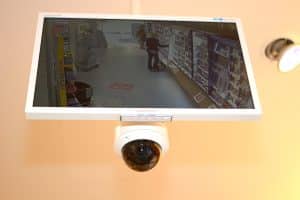Quantum Photonic Chips: Light Processing
Quantum computing has the potential to revolutionize the way we process and handle information. Traditional computers operate using classical bits, which have a value of either 0 or 1. Quantum bits, or qubits, on the other hand, can have a value of 0, 1, or both at the same time. This allows quantum computers to perform calculations much faster and more efficiently than classical computers. However, harnessing the power of quantum computing requires specialized hardware, such as quantum photonic chips, which allow for the manipulation and processing of light-based qubits.
The Basics of Quantum Photonic Chips
Quantum photonic chips, also known as optical chips, are a type of integrated circuit that uses light instead of electricity to process and transmit information. These chips are composed of photonic components, such as waveguides, optical switches, and detectors, which control and manipulate light as it passes through the chip. This light-based processing allows for faster and more efficient operations compared to traditional electronic chips.
The Advantages of Quantum Photonic Chips
One of the main advantages of quantum photonic chips is their ability to process and transmit information at the speed of light. This is significantly faster than the speed of electricity in traditional electronic chips, which can lead to delays and bottlenecks. Furthermore, light-based qubits are less susceptible to errors and external interference, making quantum photonic chips more reliable and accurate.
Another advantage of quantum photonic chips is their scalability. As the demand for more powerful and faster computers continues to grow, traditional electronic chips are reaching their limits in terms of size and power. However, quantum photonic chips can be easily integrated into larger systems and can be scaled up to handle more complex and demanding tasks.
Applications of Quantum Photonic Chips
The potential applications of quantum photonic chips are vast and extend beyond the realm of computing. In the medical field, these chips can be used for more accurate and faster medical imaging, as well as for the development of more efficient and precise drug delivery systems. In the telecommunications industry, quantum photonic chips can pave the way for more secure and faster data transmission. They can also be used in the development of advanced sensors and imaging devices for various industries.
The Future of Quantum Photonic Chips
The field of quantum computing is still in its early stages, and there is much research and development needed before it becomes a mainstream technology. However, the potential of quantum photonic chips is undeniable, and with ongoing advancements in this field, we can expect to see more powerful and efficient quantum computers in the future.
One of the key challenges in the development of quantum photonic chips is the integration of various photonic components onto a single chip. Researchers are continuously working on ways to improve the manufacturing process to create more complex and efficient chips. There is also a need for a more robust infrastructure and specialized software to support these chips and harness their full potential.
In Conclusion
Quantum photonic chips are an essential component in the development of quantum computers, which have the potential to revolutionize the way we process and handle information. These chips offer many advantages, such as faster processing speeds, increased reliability, and scalability, making them a promising platform for various applications. While there are still challenges to overcome, the future looks bright for quantum photonic chips. With ongoing research and development, we can expect to see even more powerful and advanced quantum computing technologies in the years to come.








